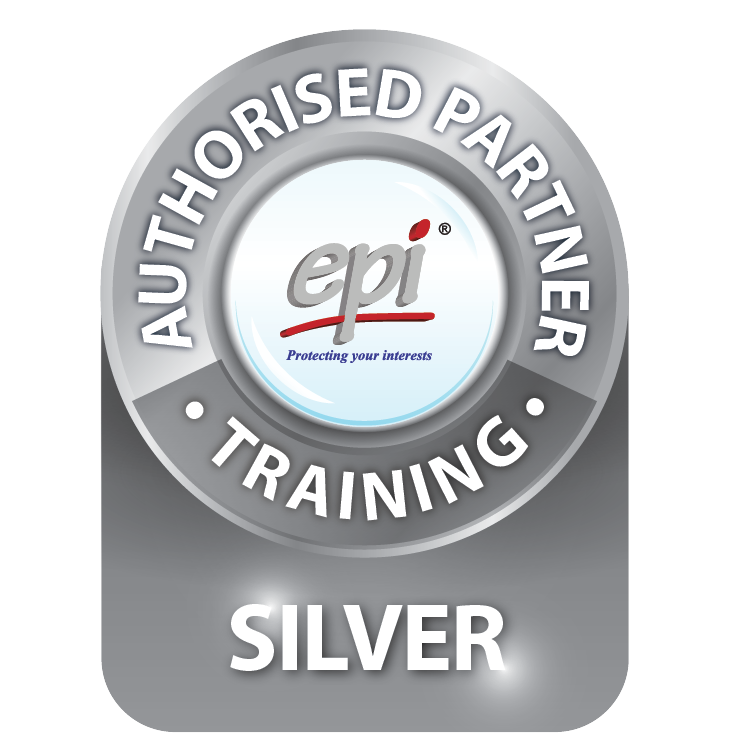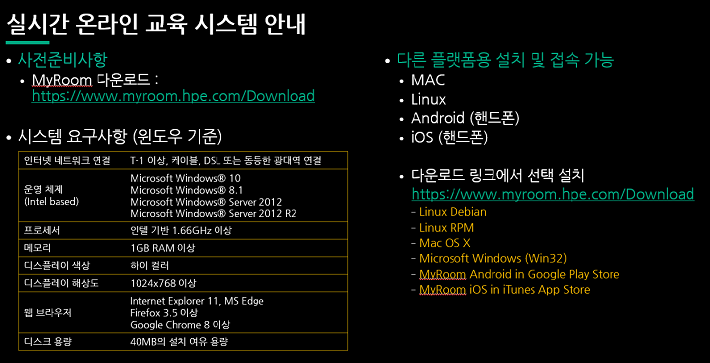Data Center > Maintenance/Operations 과정
[영어 Live] CDESS (Certified Data Centre Environmental Sustainability Specialist)
- 강의기간
-
교육 시작일 후 3일
- 난이도
- 중급
- 수강일
- 3일, 11:00~19:00
- 수강료
-
1,700,000원
KRW (KR)
- 환급
-
비환급과정
※ 비환급과정(면세) 입니다.
- 과목코드
- ABC219
| ※ 본 과정을 신청하는 경우 한국 교육서비스의 Terms&Conditions 에 동의하는 것으로 간주합니다. |
| 과정소개 |
 한국휴렛팩커드 교육센터는 2024 EPI Silver Partner입니다. 한국휴렛팩커드 교육센터는 2024 EPI Silver Partner입니다.
Participants must have at least one to two years' experience in a data centre or facilities environment. The CDCP® is highly recommended. The CDESS® will discuss data centre facility aspects and without the CDCP® or equivalent knowledge, the participant may not be able to gain the full benefits of the CDESS® training. After completion of the course the participant will be able to: -
Understand the impact of data centres on the environment -
Describe the various environmental/energy management standards -
Understand the purpose and goals of the legally binding international treaties on climate change -
Implement various sustainable performance metrics and how to use them in the data centre environment -
Manage data centre environmental sustainability using international standards -
Set up the measurement, monitoring and reporting of energy usage -
Use power efficiency indicators in a variety of data centre designs -
Use best practices for energy savings in the electrical infrastructure and in the mechanical (cooling) infrastructure -
Use best practices for energy savings for the ICT equipment and data storage -
Understand the importance of water management and waste management -
Understand the different ways to use sustainable energy in the data centre -
Get practical tips and innovative ideas to make a data centre more sustainable
|
| 수강대상 |
The primary audience for this course is any IT, facilities or data centre professional who works in and around the data centre and has the responsibility to achieve and improve efficiency and environmental sustainability, whilst maintaining the availability and manageability of the data centre.
|
| 교육내용 |
Module 1 – Impact of Data Centres on the Environment - Predictions in 2010
- Current situation
- Outlook and commitments
Module 2 – What is Environmental Sustainability - The importance of sustainability
- Senior management commitment
- Environmental sustainability framework
- Sustainability policies
- Performance standards and metrics
- Information policies
- Transparency
- Awareness
- Service charging models
Module 3 – Environmental Management - Environmental sustainability framework (ISO 14001)
- Standards and guidelines – ISO 50001 / ISO 30134
- Measurement and categories
- Baselining
- Trend analysis
- Reporting
Module 4 – Power Efficiency Indicators - Various efficiency indicators
- Power Usage Effectiveness (PUE)
- PUE measurement levels
- Factors affecting PUE
- Measurement points and intervals
- PUE in mixed source environments
- Measuring PUE in a mixed-use building
- PUE reporting
- Impact of PUE after optimising IT load
Module 5 – Electrical Energy Savings (Electrical) - Identifying the starting point for saving energy
- Sizing of power
- DC power
- Generators
- UPS systems
- Power Factor (PF)
- Energy savings on lighting
Module 6 – Electrical Energy Savings (Mechanical) - Energy savings on the cooling infrastructure
- Temperature and humidity setpoints
- Various energy ecient cooling technologies
- Energy savings on the airflow
- Liquid cooling
- Energy reusage
- PUE, ERE/ERF and Control Volume
Module 7 – Electrical Energy Savings (ICT) - Procurement
- IT equipment energy efficiency
- ITEEsv, SMPE, SMPO
- IT equipment utilisation
- Server virtualisation
- Open compute project
Module 8 – Electrical Energy Savings (Data Storage) - Data management
- Data storage management
- Data storage equipment efficiency
Module 9 – Water Management - Water Usage Effectiveness (WUE)
- Improving WUE
- Water usage at the power generation source
- Energy Water Intensity Factor (EWIF)
Module 10 – Waste Management - Waste management policies
- Life-cycle assessment (Cradle to the grave)
- 3 R’s for waste management
- Reduce
- Reuse
- Second-hand market
- Recycle
Module 11 – Sustainable Energy Usage - Sustainable energy sources
- Power purchase agreements
- Energy attribute certificates
- Renewable Energy Factor (REF)
- Matching renewable energy supply and demand
- Sustainable energy storage
- Carbon trading
Module 12 – Automated Environmental Management Systems - Use of AI and machine learning
- Load migration
- Data Centre Infrastructure Management (DCIM) solutions
|
| 선수과목 |
|
| 다음과목 |
|

- 교육장
- 실시간온라인교육
- 강의장
- MyRoom
- 주소
- 본 과정은 실시간 온라인으로 진행되는 과정으로 개강확정 후 접속 URL을 별도 안내드립니다.
- 전화
- 1661-9080
- 팩스
- 주차
-
불가능
- 안내
-
코로나 19 감염 예방을 위해 집합교육 참석이 어려운 분들을 위한 실시간 온라인 교육입니다.